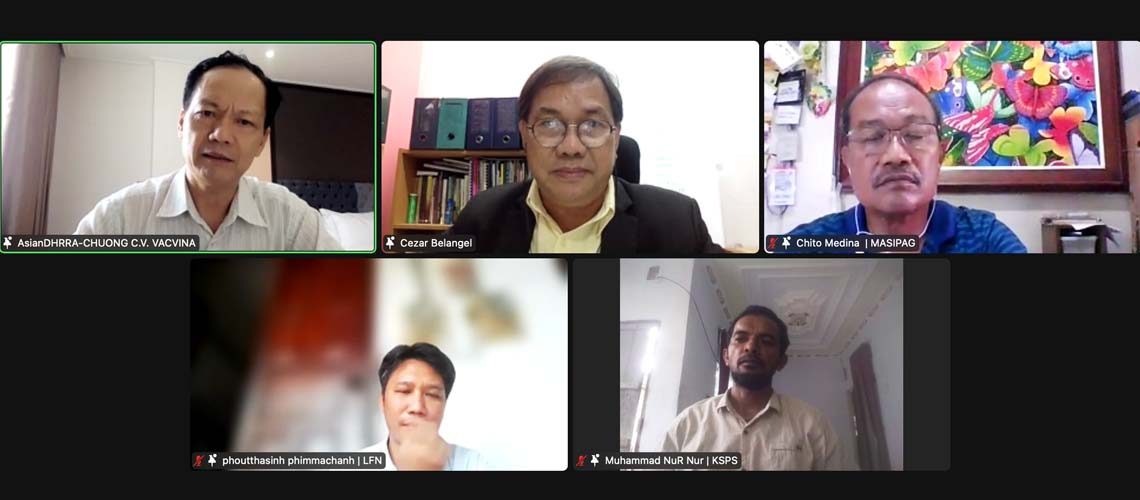14 September 2022 – The Asian Partnership for the Development of Human Resources in Rural Areas (AsiaDHRRA) organized its AsiaDHRRA e-Learning Exchanges on Rural Development and Transitions (ALERT) series on Agroecology and Food Systems Transformation on 14 September 2022 via zoom web conference. The forum was attended by AsiaDHRRA members and partner Civil Society Organizations (CSO) and Rural Peoples’ Organizations (RPO), the academic sector; and development partners from the Food and Agriculture Organization of the United Nations (FAO), AgriCord, and fellow agri-agencies WeEffect, Trias NGO, and Food and Forest Development (FFD). The objective is to broaden the understanding of AsiaDHRRA and its members and partner-RPOs on agroecology in the region and its role in farm and food systems transformation towards achieving the Sustainable Development Goals (SDG) in general and sustainable food systems in particular.

Pierre Ferrand, FAO’s Agriculture officer on Agroecology, presented the current status of the agri-food system, which calls for a paradigm shift to address issues on nutrition, food safety, biodiversity loss, climate change, and the lack of youth’s interest in agriculture. He added the importance of Agroecology as an answer to the consequences of industrial agriculture, which affected the environment, societal effects on marginalizing smallholder and indigenous farmers, and its extensive impact on nutrition. Lastly, he came up with the latest Tool for Agroecology Performance Evaluation (TAPE) and highlighted its objective, the process, purpose, and the countries adopting the application in Asia. TAPE is a comprehensive platform that measures the multi-dimensional performance of agroecological systems across the different dimensions of sustainability.

The session also introduced AsiaDHRRA’s cooperation with AgriCord, focusing on policy advocacy of the Farmers Organization’s Leading Research & Innovation on agroecology for sustainable food systems (FORI) project and its views on agroecology towards developing the network’s AE Strategy Paper. In addition, invited speakers from Lao Farmer Network (LFN), Mr. Phoutthasinh Phimmachanh; Komunitas Swabina Pedesaan Salassae (KSPS), Mr. Muhammad Nur; Magsasaka at Siyentipiko Para sa Pag-unlad ng Agrikultura (MASIPAG) Dr. Chito Medina; and Vietnam Gardening Association’s (VACVINA) Dr. Chu Van Chuong, shared on-going initiatives on agroecology and food systems transformation, farmers’ market management, natural farming, and soil health, farmer-scientist collaboration in research, and biodiversity in a small farm ecosystem. WeEffect also presented its cooperation with AgriCord under FORI, focusing on piloting farmer-led participatory research to tackle diseases of bananas using agroecological principles.

Alexandra Parcinska from AgriCord introduced the global perspective on FO-RI that involves action research projects led by farmers and an advocacy component to create policies that will enable the agroecological transition. She illustrated the program’s geographical scope, including Africa, Southeast Asia, Pacific Island, the Caribbean, and Latin America. She emphasized the FO-RI building blocks/components, namely; 1) lobby and advocacy; 2) methodological support, capacity development, and joint learning; 3) coordination; and 4) action research project. The cross-cutting elements include COVID-19, gender, youth, environmental stability, and climate change.

